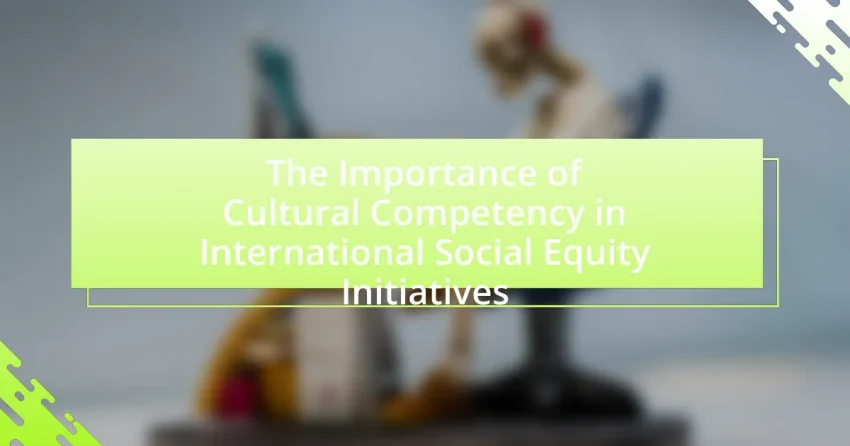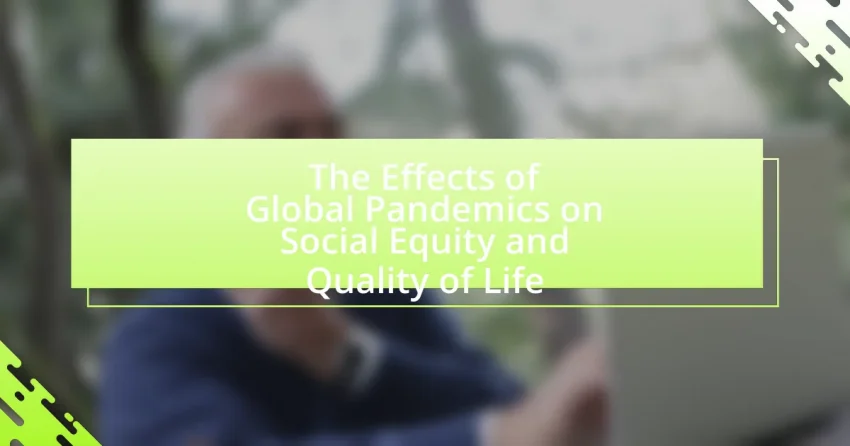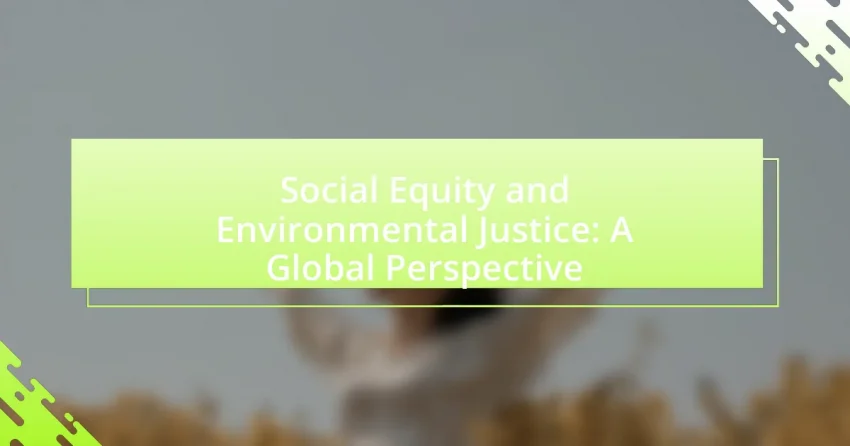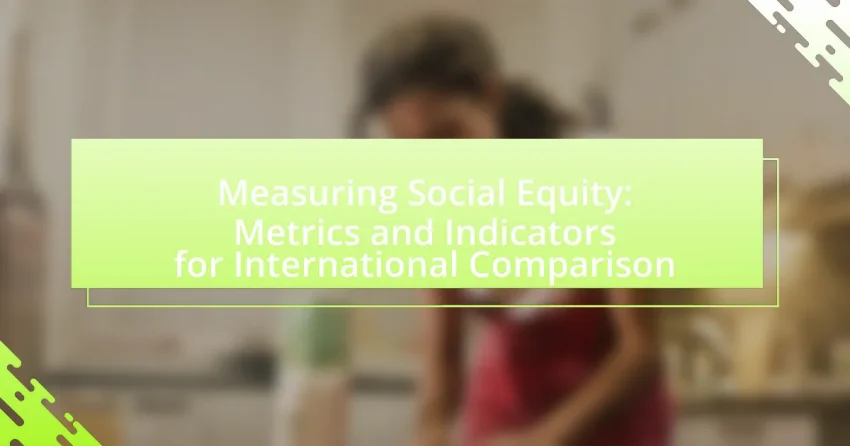Cultural competency is a critical factor in the success of international social equity initiatives, as it facilitates effective communication and understanding among diverse populations. This article examines the significance of cultural competency in promoting trust, collaboration, and inclusive practices that address the unique needs of marginalized communities. Key components of cultural competency, such as awareness…
Social Equity in Healthcare: A Comparative Study of Different Countries
Social equity in healthcare is defined as the fair distribution of healthcare resources and services, ensuring equal access to medical care for all individuals, irrespective of socioeconomic status, race, or geographic location. This article examines the significance of social equity in healthcare, highlighting its impact on health outcomes and the principles of access, quality, and…
The Effects of Global Pandemics on Social Equity and Quality of Life
The article examines the effects of global pandemics on social equity and quality of life, highlighting how such crises exacerbate existing disparities among vulnerable populations. It discusses the disproportionate impact on marginalized communities, including higher rates of infection and mortality, economic instability, and mental health challenges. Key factors such as socioeconomic status, age, and access…
Social Equity and Environmental Justice: A Global Perspective
Social equity and environmental justice are critical concepts that address the fair distribution of resources and opportunities, particularly for marginalized communities facing disproportionate environmental hazards. This article explores the intersection of these two principles, highlighting their importance in promoting sustainable practices and addressing systemic inequalities. Key topics include the historical context shaping the discourse, the…
Measuring Social Equity: Metrics and Indicators for International Comparison
Measuring social equity involves assessing fairness in the distribution of resources, opportunities, and privileges within society, utilizing various metrics such as the Gini coefficient and the Human Development Index (HDI). This article explores the importance of measuring social equity, its implications for society and economic development, and the key concepts and metrics used in this…
Housing Policies and Their Effect on Social Equity in Urban Areas
Housing policies are essential regulations established by governments to manage housing development, allocation, and affordability in urban areas. These policies significantly influence social equity by determining access to affordable housing, impacting socioeconomic status, and addressing issues like homelessness and urban sprawl. Key aspects include inclusionary zoning, which promotes equitable access by requiring affordable units in…
Gender Equity and Its Influence on Global Health Outcomes
Gender equity is defined as the fair treatment and access to opportunities for individuals of all genders, significantly impacting global health outcomes. The article explores how gender equity influences healthcare access, treatment, and education, highlighting its correlation with improved health metrics such as lower maternal mortality rates. Key components of gender equity in health include…
Analyzing the Role of Technology in Bridging Social Gaps Worldwide
The article analyzes the role of technology in bridging social gaps worldwide, highlighting its impact on communication, access to information, and economic opportunities. It discusses how mobile technology, social media, and online platforms facilitate educational access, healthcare services, and financial inclusion, particularly for marginalized communities. The article also examines the challenges posed by the digital…
The Role of Physical Activity in Enhancing Life Quality Across Different Countries
The article examines the role of physical activity in enhancing life quality across different countries, highlighting its impact on physical health, mental well-being, and social connections. It discusses the benefits of regular exercise, including reduced risks of chronic diseases, improved mental health outcomes, and increased social interactions. The article also explores how cultural contexts influence…
Assessing the Impact of Income Inequality on International Life Quality
The article examines the relationship between income inequality and international life quality, highlighting how disparities in income negatively affect health outcomes, education, and social stability across various countries. It discusses metrics used to measure life quality, such as the Human Development Index and the Gini coefficient, and illustrates how these metrics vary in nations with…









